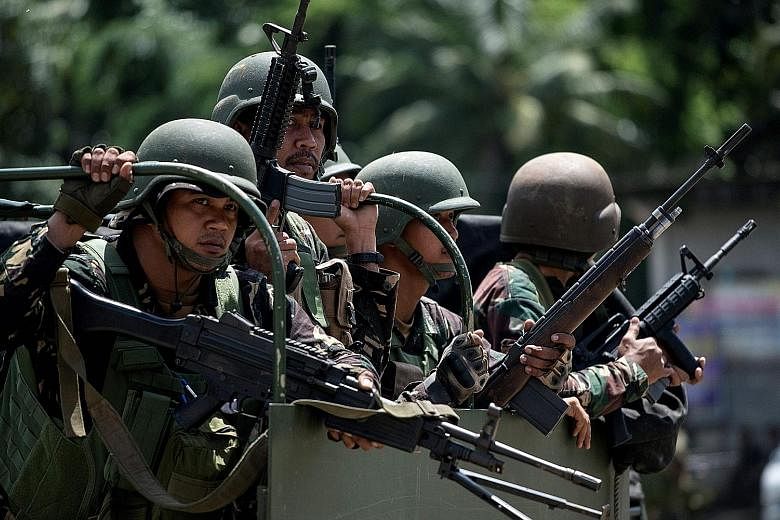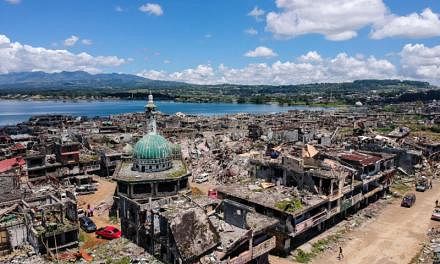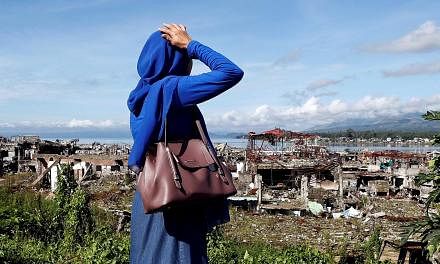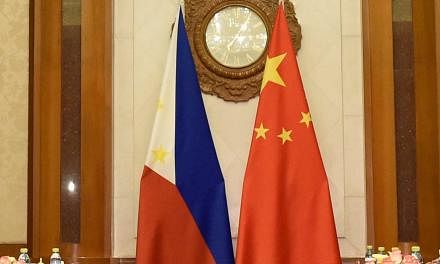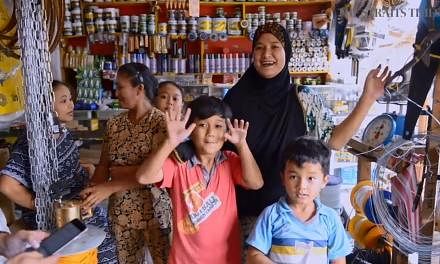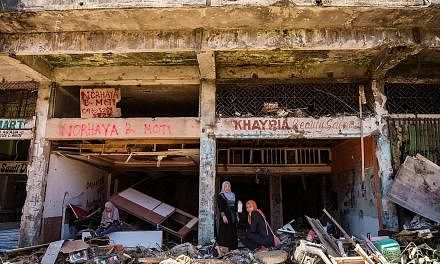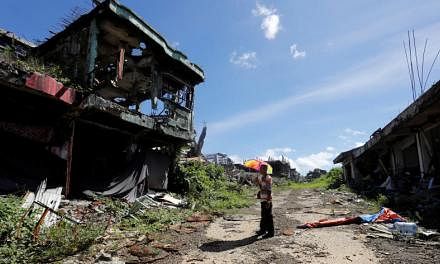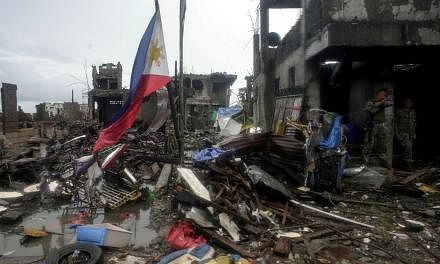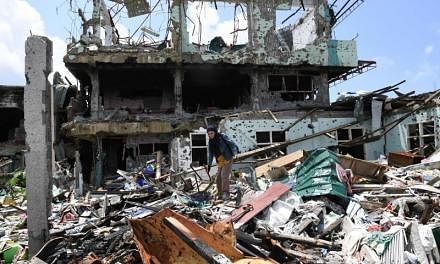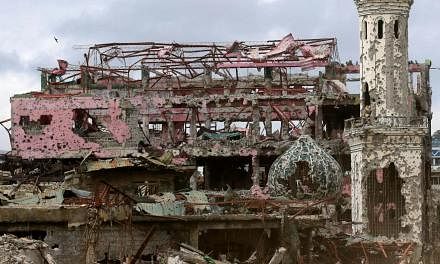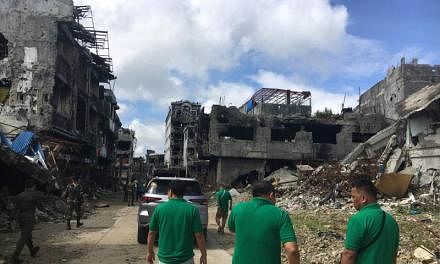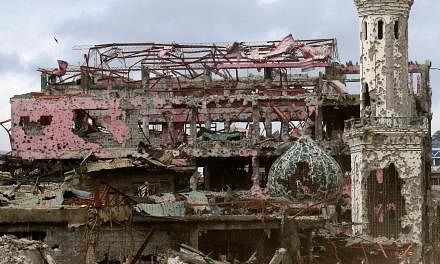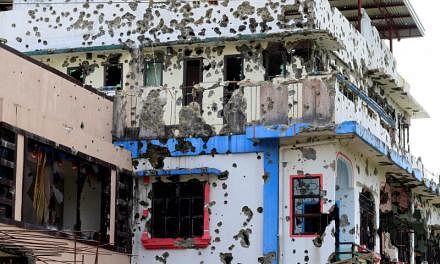Pictures resembling scenes of devastation from Aleppo are circulating on social media - but, this time, they are from the South-east Asian city of Marawi, where Philippine troops are struggling to retake the city from the Maute Group, also known as ISIS-Lanao, an ISIS-affiliated terrorist organisation.
On May 23, the black flags of the Islamic State in Iraq and Syria (ISIS) suddenly appeared on the roof tops of Marawi, one of the largest cities in Mindanao, an island in the southern Philippines that has developed a notorious reputation for gangsterism, rampant crime, arms smuggling, and a shockingly high incidence of poverty. How is it that a South-east Asian terrorist group could mount such a daring operation, and what are its portents for regional security?
The heart of ISIS is in Syria and Iraq, not in tropical South-east Asia. Yet the territory that comprises the "Islamic State" is, by all accounts, shrinking by the minute. The headquarters of ISIS in Raqqa and its surrounding strongholds are crumbling as they struggle to absorb the strikes and blows of a sophisticated international air force led by Western and Turkish forces. In Europe, intelligence agencies raked wide and deep among radicalised elements.
As a matter of fact, ISIS' global capabilities have arguably weakened to a point where the group has had to rework its strategy from a "Caliphate-building" strategy to a more clustered Al-Qaeda-like approach relying on independent cells and radicalised youth to stage lone-wolf attacks, no less barbaric but far more disconcerting, striking European and Middle Eastern cities.
This new approach also means that the ideology has grown more pervasive, and attacks are more fragmented, making them difficult to anticipate. In other words, the threat of the ISIS brand of terrorism has morphed.
In Mindanao, however, a presumptive "wilayah" or province of ISIS, sympathisers of the terrorist organisation retain the capability to mount major attacks, even to the extent of holding hostage a city of 200,000 for more than two weeks. How did they manage this?
To be sure, militancy is not new to the southern Philippines. Militants and insurgents have been waging armed conflict against Manila for decades. But, of late, ISIS has captured the imagination and reinvigorated these organisations, many of which have sworn allegiance to its black flag and now entertain thoughts of transforming southern Philippines into a province of ISIS.
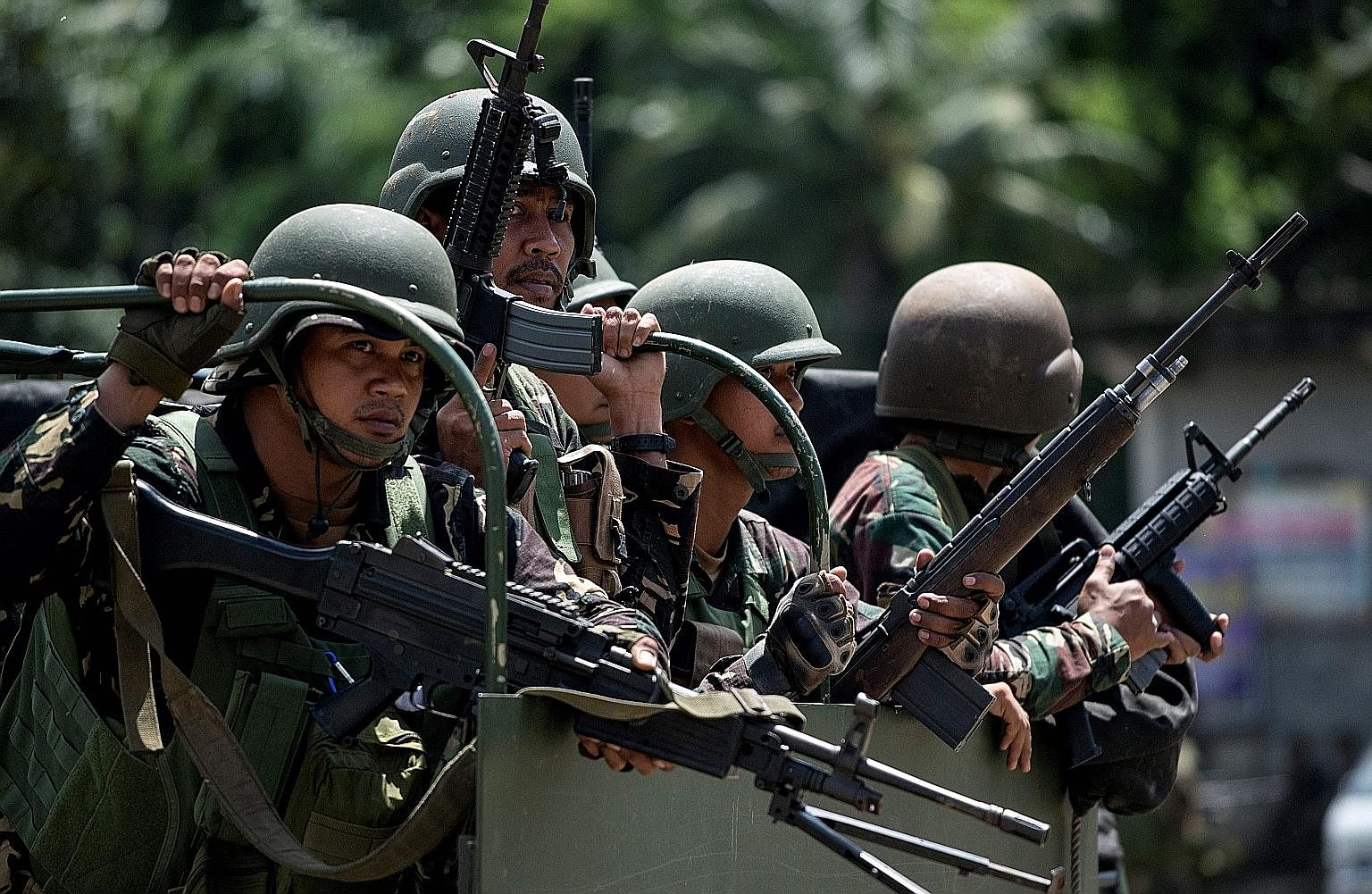
A major problem has been reluctance on the part of many elements in Philippine security officialdom to acknowledge the extent of the present challenge. This is evidenced in the tendency of not a few security officials to still insist on dismissing elements such as the Abu Sayyaf as mere bandits and criminals.
Moreover, this inability to grasp the nettle has been compounded by a re-orientation of counter-insurgency policy on the part of President Rodrigo Duterte, himself a resident of Mindanao, to other matters.
FRIENDS AND NEIGHBOURS
By shifting attention and resources away from the Philippine alliance with the United States and seeking to enlist the help of China and Russia to battle the insurgency and upgrade his military, Mr Duterte has inadvertently dialled-back decades of counter-terrorism and counter-insurgency work with the US military and its allies. For all the well-documented flaws in American counter-insurgency strategy over the years, the arid reality is that China has even less experience and capability in dealing with such conflicts whether militarily or politically, especially when its adversaries draw on ethnic or religious motivations. In Xinjiang, the current Beijing leadership has chosen to privilege punitive means to tame the Uighur, often at the expense of the hard-earned political capital accrued by previous administrations. Similarly, Russia, which flattened Grozny during a war of attrition in Chechnya, is seeing the roots of radicalism grow across its restive Caucasus republics. Mr Duterte's military realignment may ring popular among his constituents, but it may well prove to be a strategic mistake.
Counter-terrorism efforts are further bedevilled by the ongoing anti-drug campaign. Mr Duterte's war on drugs - which aims to break the large narco-economy within the state - is not without controversy. The president unleashed an ill-trained police force to fight the powerful underworld of drugs, and unfortunate accidents have happened. For instance, a Korean businessman was kidnapped and killed by Filipino police officers after his wife failed to pay the ransom for his release. Recognising the ethical shortcomings of his police force, the president called upon an already underfunded and ill-equipped army to lead the war on drugs alongside a tired police force.
Of utmost concern, however, is what has inadvertently resulted from Mr Duterte's war on drugs: the weakening of the strategic capabilities of the state's security forces by way of the involvement and preoccupation of the military in a deep, multi-layered and intractable drug war.
Additionally, the Philippines must also understand that the Marawi incident speaks not just to a domestic problem, but a transnational issue where poverty, crime and radicalisation collide. A transnational issue which needs a transnational approach in the search for resolutions.
In the event that the spectre of the loss of sovereignty is raised, Manila would be well-advised to be mindful that a not inconsequential number of the militants operating in the southern islands are foreigners, with most from Indonesia and also Malaysia. This being the case, it is perfectly understandable - not to mention within its right - to request that regional states shoulder some of the burden for counter-terrorism efforts. Indeed, regional states have already indicated their willingness to make contributions to an urgently required collective effort.
Second, Manila should also recall that just as the security challenges emanating from the southern islands have a long legacy, so too has the matter of formal external assistance. In the 1990s, Manila's longstanding conflict with the Moro National Liberation Front was brought to an end with assistance from Indonesia and Malaysia. In fact, the seeds of that exercise in conflict resolution were sown way back in December 1976 with the signing of the provisional Tripoli Agreement brokered by the Libyan government. With Malaysian facilitation, Manila and the Moro Islamic Liberation Front signed the Comprehensive Agreement on the Bangsamoro in 2014, bringing to an end three decades of insurgency. In other words, assistance from friends and neighbours has been instrumental to conflict resolution in the restive southern islands.
Without a doubt, the Bangsamoro has had to endure neglect, corruption and violence for far too long. And, if the world doesn't want to see a second ISIS front developing in Asean, the top Filipino leadershave to have the intelligence at their fingertips, without which they will end up only second-guessing themselves on the counter-terrorism front against groups like Maute and Abu Sayyaf that have too often stolen the march on Filipino security forces. As the Philippines' military is involved in a two-front war against radical terrorists in the south and drug lords across the archipelago, establishing strong military alliances with those seasoned in counter-insurgency and counter-terrorism is paramount in order to overcome physical and budgetary limitations of the Philippines' military.
•Joseph Chinyong Liow is Dean and Professor of Comparative and International Politics at the S. Rajaratnam School of International Studies, Nanyang Technological University. Salem Ghandour was a Fulbright Fellow and now works as a sovereign specialist banker focusing on Asean markets.
